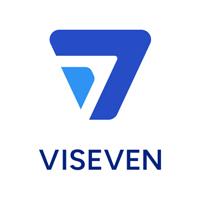Scaling AI in life sciences: From automation to strategic transformation

When talking about AI in pharma and life sciences marketing, we often focus on the automation of content creation, management, and delivery. No wonder, since effective content marketing has a significant impact on the way a company and its products are perceived by HCPs and patients. And AI can do a lot to enhance content processes.
However, today I want to bring your attention to a few other areas in the life sciences domain that are positively influenced by AI.
Bridging gaps in the regulatory landscape with AI
The pharmaceutical industry faces a major hurdle: navigating a labyrinth of regulations and time-consuming approval processes. This challenge stems from stringent compliance requirements that impact every aspect of pharma marketing. Before medical content can reach its audience, it must clear a gauntlet of medical, legal, and regulatory (MLR) reviews. This meticulous vetting, while necessary, often creates significant bottlenecks in content distribution.
The traditional manual approach to MLR review in pharma marketing fails to meet modern demands. This time-consuming, error-prone process involves human reviewers scrutinising diverse documents for compliance and key insights. As document volumes increase, the manual method also fails to scale efficiently, creating costly delays. Finding specific, decision-critical information in extensive documents is challenging and often ineffective.
How artificial intelligence is changing this status quo
AI automates a big portion of the repetitive tasks that go hand in hand with MLR processes, making them more efficient.
By utilising Natural Language Processing for fast scanning of documents on non-compliant language and unapproved claims, it allows human reviewers to perform assessments that are more complex. This technology makes multiple-speed approval possible: fast-tracking material that is compliant and flagging materials that are not, thereby reducing overall approval times.
AI does more than just identify issues; it goes the extra mile to suggest compliant alternatives that ensure messaging is maintained within regulatory frameworks.
What's more, AI-powered analytics can also review historic MLR reviews for trends and predict potential hurdles to optimise this review workflow. By automating initial checks, recommending content, and providing predictive insights, AI not only speeds up the MLR process, but also makes materials more consistent, enabling faster time-to-market with continued strict regulatory compliance.
So, what tangible business results is pharma getting from such a solution? Well, we can’t speak for everybody, but eWizard’s MLR acceleration engine has provided these outcomes for its clients:
- Users reported significant reductions in the time required for the MLR review process, leading to faster content approvals and quicker time-to-market for marketing campaigns.
- Organisations experienced decreased spending on the MLR process, with some reporting cost reductions of up to 25% due to improved efficiency and reduced manual effort.
- The implementation led to a more than 30% increase in content reuse, allowing teams to leverage pre-approved assets and modular content development.
If you’re interested in taking a look at how eWizard’s MLR acceleration engine works, we’ve recently demonstrated its functionality during a webinar.
AI as a catalyst for enterprise-wide change
Artificial intelligence has become a buzzword lately. Many organisations treat this technology as a panacea that can solve all of their problems. The truth is a little different. AI can solve a multitude of issues, but not without addressing organisational processes first. Here are the steps I would recommend taking when implementing a new solution in your company.
Start with a pilot
The key to successful AI implementation is to begin with a pilot project. It's crucial to have a clearly defined use case that demonstrates how AI can enhance efficiency and productivity in your organisation.
Implement the pilot, learn from the experience, and then use those insights to scale across the organisation.
Choosing the right automation candidate
Selecting an appropriate process to automate first is critical. While content management or MLR acceleration might seem appealing, these are often complex implementations that may not be ideal starting points.
Instead, consider simpler, yet highly impactful, tasks that AI can perform, such as auto-tagging. This process, often still manual in many industries, can benefit significantly from AI integration:
- Manual tagging typically achieves only 60-70% accuracy and consistency.
- AI-assisted tagging can increase accuracy rates to up to 90%.
- Time savings on manual efforts can reach around 60% after implementing AI for auto-tagging.
By choosing a manageable first automation candidate, you allow your team time to become comfortable with the technology and learn how to work with it effectively.
Scaling your AI solutions
To successfully scale your AI solutions, a well-defined change management process is essential. This process should include:
- Executive sponsorship: Strong leadership conviction that AI is necessary to increase efficiency and productivity across functions.
- Transparent communication: Leaders must clearly explain to all stakeholders why processes are changing and the benefits they can expect.
- Upskilling your team: Equip your content team with the skills to work effectively with AI tools. This can involve training sessions and workshops wherein team members are trained on the use of AI in creating content, data analysis, and compliance checks.
- Create psychological safety: To alleviate fears and resistance, leaders should clearly communicate that AI is here to augment the teams’ work, not replace it.
- Agile implementation methodology: Avoid "analysis paralysis" by selecting use cases and working backward to determine the right technology.
- Scalability focus: When selecting an automation candidate, consider its potential for enterprise-wide impact and scalability.
Implementation strategies
Approach AI implementation as a structured project with a clear plan, roadmap, and strict timelines to avoid endless pilots. Embrace an agile methodology that allows for implementation, learning, and iteration based on pilot experiences. This approach enables quick adaptation to challenges and opportunities. Effectively communicate the metrics and benefits of AI technology to your teams, helping them understand its positive impact on their work and the organisation.
By providing concrete examples of improvements in efficiency and productivity, you can build support for the AI implementation process. This strategic approach allows for a measured start and intelligent scaling, driving significant improvements across the enterprise.
AI governance
Finally, it’s crucial to establish an AI governance framework that addresses the ethical use of AI, particularly in highly regulated sectors like pharma. This framework should ensure that data privacy is maintained, and that the AI operates without bias, especially in content automation or decision-making processes.
Future of AI in life sciences content management
The future of AI in life sciences content management will completely change the way healthcare organisations interact with their stakeholders. Leading platforms, like eWizard, raise the standards of what can be done in digital content operations and omnichannel engagement.
Advanced content personalisation
The next generation of content management will leverage AI to create truly personalised experiences. For instance, eWizard is developing an automated, campaign-based and AI-driven content deployment tool that aims to revolutionise content delivery.
This system will intelligently adapt content based on multiple factors:
- Recipient details and behaviour patterns
- Content delivery and viewing statistics
- Individual interaction tracking
- Historical performance data
- Market-specific requirements
The platform's omnichannel capabilities will extend beyond traditional content distribution through two key innovations. First, AI-driven content generation will enable both prompt-based creation and intelligent adaptation of existing content across channels. Second, AI algorithms will optimise channel selection based on content type, target audience, and market dynamics.
Predictive analytics and market intelligence
The future of content management will be increasingly data-driven, with AI systems providing sophisticated predictive capabilities. These systems will positively transform resource allocation by identifying high-potential healthcare professionals and optimising geographic targeting strategies. Advanced AI algorithms will power dynamic pricing models that consider patient demographics and economic factors, while simultaneously analysing healthcare regulations and industry trends to optimise market access.
Enhanced engagement and feedback systems
AI will transform how life sciences companies understand and respond to their audience's needs. Through advanced sentiment analysis and social listening, organisations will gain deeper insights into emerging trends and customer preferences.
AI-powered chatbots will enhance HCP engagement, while comprehensive customer lifetime value prediction will enable more strategic relationship management. The system will continuously analyse feedback across multiple channels, including social media, and proactively assess disengagement risks to maintain strong stakeholder relationships.
Strategic content operations
The evolution of platforms like eWizard demonstrates how AI will streamline content operations across the industry. This basically amounts to creating and adapting content with automation to drive efficient multivendor environments and streamline MLR approval processes. Automation extends from digital content creation to its publication itself, while data-driven insights will avidly create opportunities to optimise content strategy.
Closing thoughts
The transformation of AI from a mere automation tool to a strategic cornerstone in life sciences marks a significant shift in how organisations approach content management and regulatory compliance. This modern convergence of AI-driven regulatory compliance with enterprise-wide transformation opens new avenues for life sciences organisations to achieve not only compliance, but also innovation in their pursuits.
As more impactful AI-driven content management prevails, the personalisation of experiences, market trend predictions, and optimisation of content strategies — all while maintaining regulatory compliance — positions AI as an enabler of future performance.
Deciding to adopt AI technology alone is not sufficient. Organisations that strike a good balance between AI's capabilities and human expertise will be better positioned to serve healthcare professionals and patients in this changing landscape.
About the author
 Roman Vasylenko, Co-founder and Chief Technology Officer at Viseven and eWizard.
Roman Vasylenko, Co-founder and Chief Technology Officer at Viseven and eWizard.
Roman Vasylenko is the man behind eWizard, a Content Experience Platform for Big Pharma and Life Sciences businesses that improves Digital Content Operations. He has over 15 years of software development expertise. Roman is the Co-founder and Chief Technology Officer at Viseven, where he is responsible for developing innovative products and technology transformation.
About Viseven

Viseven is a future-inspired global MarTech Services Provider for Pharma and Life Sciences industries with more than a decade of experience. Viseven's digital transformation centre offers innovative solutions for companies of different sizes and digital maturity levels by merging marketing and digital technology expertise with innovation and strategic capabilities. The company's solutions, products, and services are actively used by the TOP 100 Pharma and Life Sciences companies in more than 50 countries around the globe.
Follow Viseven on social media: LinkedIn,Twitter,YouTube,Facebook
Follow Roman Vasylenko on LinkedIn











